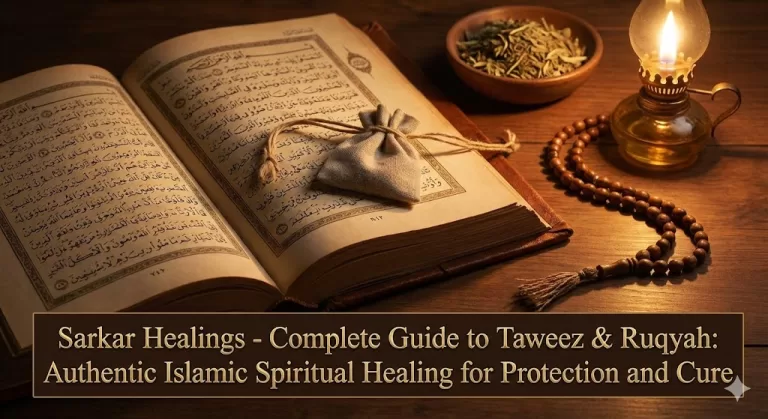Arafat Day 2025: Virtues, Fasting & Dua Guide for Muslims
The Sacred Day of Arafat
A Complete Guide to Virtues, Practices, and Spiritual Significance
Introduction
The Day of Arafat (Yawm al-Arafah) stands as one of Islam's most blessed and spiritually significant days. Falling on the 9th of Dhul-Hijjah, just before Eid al-Adha, this sacred day represents the pinnacle of the Hajj pilgrimage and offers extraordinary opportunities for forgiveness and spiritual renewal to Muslims worldwide.
While millions of pilgrims gather on the plains of Mount Arafat in Saudi Arabia, Muslims around the globe can participate in this blessed day through fasting, prayer, and remembrance of Allah. This comprehensive guide explores the profound significance of Arafat Day and provides practical guidance for maximizing its spiritual benefits.
The Spiritual Foundations of Arafat Day
The Heart of Hajj
The Day of Arafat represents the essence of the Hajj pilgrimage. The Prophet Muhammad (ﷺ) emphasized its critical importance when he said:
This profound statement indicates that the standing at Arafat (Wuquf) is the most essential ritual of Hajj. Without this sacred gathering, the pilgrimage remains incomplete. It was also on this sacred plain that the Prophet Muhammad (ﷺ) delivered his historic Farewell Sermon (Khutbat al-Wada'), emphasizing core Islamic principles of equality, justice, and the completion of the faith—making this location doubly blessed in Islamic history.
On this day, pilgrims engage in intense worship, supplication, and repentance, creating a powerful spiritual atmosphere that resonates throughout the Muslim world.
A Day of Divine Mercy and Forgiveness
Arafat Day is uniquely blessed with Allah's mercy and forgiveness. The Prophet (ﷺ) revealed the extraordinary nature of this day:
This hadith illuminates the exceptional mercy available on this day, when Allah's attention turns to His servants with unparalleled compassion and readiness to forgive. The question "What do these people want?" reflects Allah's infinite generosity—He already knows their needs and desires, yet He expresses His joy at their sincere devotion and eagerness to grant their requests. It demonstrates how Allah takes pride in His servants' worship and their turning to Him in humility and hope.
The Remarkable Reward of Fasting
For Muslims not performing Hajj, fasting on Arafat Day offers incredible spiritual benefits. The Messenger of Allah (ﷺ) promised:
This extraordinary reward means that a single day of fasting can purify two entire years of sins—a blessing that demonstrates Allah's infinite generosity and the special status of this sacred day.
Practical Ways to Maximize Arafat Day Blessings
1. Observing the Sunnah Fast
For Non-Pilgrims: Fasting on Arafat Day is highly recommended and carries immense rewards. Begin the fast at dawn (Fajr) and break it at sunset (Maghrib), using this time for increased worship and reflection.
For Pilgrims: Those performing Hajj are not required to fast, as they need physical strength for the demanding worship at Arafat. Their focus should be on the spiritual rituals of the pilgrimage.
2. Engaging in Powerful Supplications
The Prophet (ﷺ) highlighted the special nature of dua on this day:
لَا إِلَهَ إِلَّا اللَّهُ وَحْدَهُ لَا شَرِيكَ لَهُ، لَهُ الْمُلْكُ وَلَهُ الْحَمْدُ وَهُوَ عَلَى كُلِّ شَيْءٍ قَدِيرٌ
Translation: "There is no god but Allah alone, with no partner. His is the dominion and His is the praise, and He is able to do all things."
Timing: The last hour before Maghrib is considered especially blessed for supplication. Use this time for sincere, heartfelt dua.
3. Intensive Remembrance of Allah (Dhikr)
Increase your remembrance of Allah through these powerful phrases:
- Takbeer: "Allahu Akbar" (Allah is the Greatest)
- Tahleel: "La ilaha illallah" (There is no god but Allah)
- Tahmeed: "Alhamdulillahi rabbil alameen" (All praise is due to Allah, Lord of the worlds)
- Tasbih: "Subhanallah" (Glory be to Allah)
4. Seeking Forgiveness (Istighfar)
Repentance is particularly accepted on this blessed day. Regularly recite:
- "Astaghfirullah" (I seek forgiveness from Allah)
- "Allahumma ghfirli warhamni wa'fini" (O Allah, forgive me, have mercy on me, and grant me well-being)
- "Rabbana atina fi'd-dunya hasanatan wa fi'l-akhirati hasanatan wa qina 'adhab an-nar" (Our Lord, give us good in this world and good in the hereafter, and save us from the punishment of the Fire)
5. Charitable Acts (Sadaqah)
Generosity is multiplied in reward during blessed times. Consider:
- Donating to those in need
- Feeding the hungry
- Supporting Islamic educational institutions
- Contributing to humanitarian causes
- Helping neighbors and community members
Frequently Asked Questions
Pilgrims performing Hajj are not required to fast on Arafat Day. Their focus should be on the intensive worship at Mount Arafat, which requires physical strength and energy.
While fasting is highly recommended, missing it doesn't negate the opportunity for blessings. One can still benefit through sincere dua, dhikr, charity, and other acts of worship.
Yes, Arafat Day holds significance for all Muslims worldwide, not just Hajj pilgrims. Every Muslim can participate in its blessings through fasting, prayer, and remembrance.
Conclusion: Embracing the Divine Opportunity
The Day of Arafat represents one of Islam's greatest gifts—a day when the gates of mercy are wide open, sins are forgiven, and spiritual renewal is within reach. Whether standing on the plains of Arafat or observing from home, every Muslim has the opportunity to transform their spiritual state through sincere worship and devotion.
As we approach this blessed day, let us prepare our hearts and minds for maximum benefit. Through fasting, prayer, remembrance, and charity, we can join the millions of believers worldwide in seeking Allah's forgiveness and mercy.
May Allah accept our worship, forgive our shortcomings, and grant us the full blessings of Arafat Day and the celebration of Eid al-Adha that follows. May this sacred day bring purification, peace, and renewed faith to all who observe it with sincerity.
Share this guide with fellow Muslims to spread the knowledge and multiply the rewards of this blessed day.






